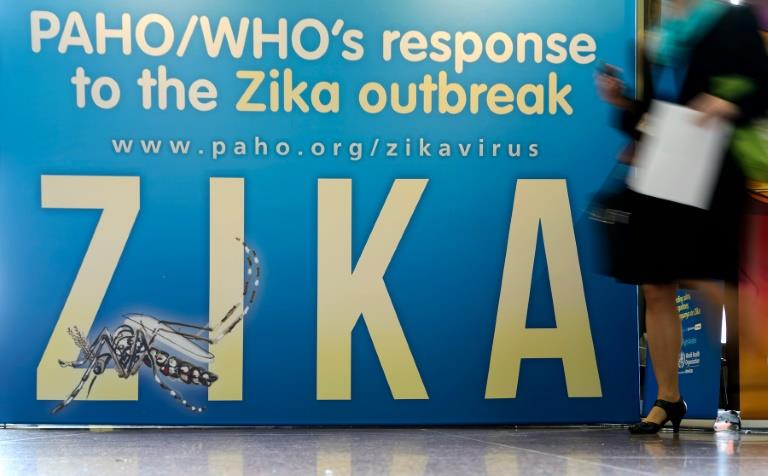
Zika virus passed from Utah patient to caregiver
The case raises the prospect of a previously unknown path of transmission for a virus that is capable of causing birth defects and has traveled quickly though Latin America.
The caregiver has since recovered from the infection, which is primarily transmitted by mosquitoes but can also be passed on through sexual contact.
However, common modes of transmission have been ruled out in this case. The caregiver had not traveled to a Zika-affected area or had sex with an infected person, Staples said.
Mosquitoes carrying the Zika virus are not believed to present in Utah.
"We are learning something new about Zika virus every day," said Erin Staples, a medical epidemiologist with the US Centers for Disease Control and Prevention.
"This situation appears to be unique," she told reporters.
A statement issued by the CDC said the elderly victim had "uniquely high amounts of virus -- more than 100,000 times higher than seen in other samples of infected people -- in his blood."
The man, who was in his 70s and had an underlying health condition, passed away in late June, after traveling to a country where the mosquito-transmitted virus is active, the Salt Lake County Health Department said.
- Transmission route unclear -
Health authorities said they are investigating how the caregiver, described only as a "family contact," may have been infected with Zika.
Previous research has shown Zika virus has been detected in blood, semen, saliva, urine, breastmilk and in swabs from the female genital tract.
"We are not at the point today to describe any specific action that might have led to transmission," said Michael Bell, medical epidemiologist at the CDC's Division of Healthcare Quality Promotion.
Asked by a reporter if airborne transmission was considered a possibility, Bell replied: "In our line of work, nothing is ever truly off the table. The table is vast and we never want to underestimate possibilities.
"However, it would be extremely, extremely unlikely for something like that to occur in the absence of something like a medical procedure."
As of mid-July, US health officials have reported 1,306 cases of Zika in the continental United States and Hawaii.
None of these cases have been the result of local spread by mosquitoes. Fourteen have involved sexual transmission and one was the result of a laboratory exposure.
Zika virus can cause a variety of symptoms, including rash and joint and muscle pain, but often carries no symptoms at all.
It is primarily of concern to women who are pregnant or want to become pregnant, because the virus carries the risk of causing irreversible brain defects in the fetus.

Legal Disclaimer:
MENAFN provides the
information “as is” without warranty of any kind. We do not accept
any responsibility or liability for the accuracy, content, images,
videos, licenses, completeness, legality, or reliability of the information
contained in this article. If you have any complaints or copyright
issues related to this article, kindly contact the provider above.

















Comments
No comment